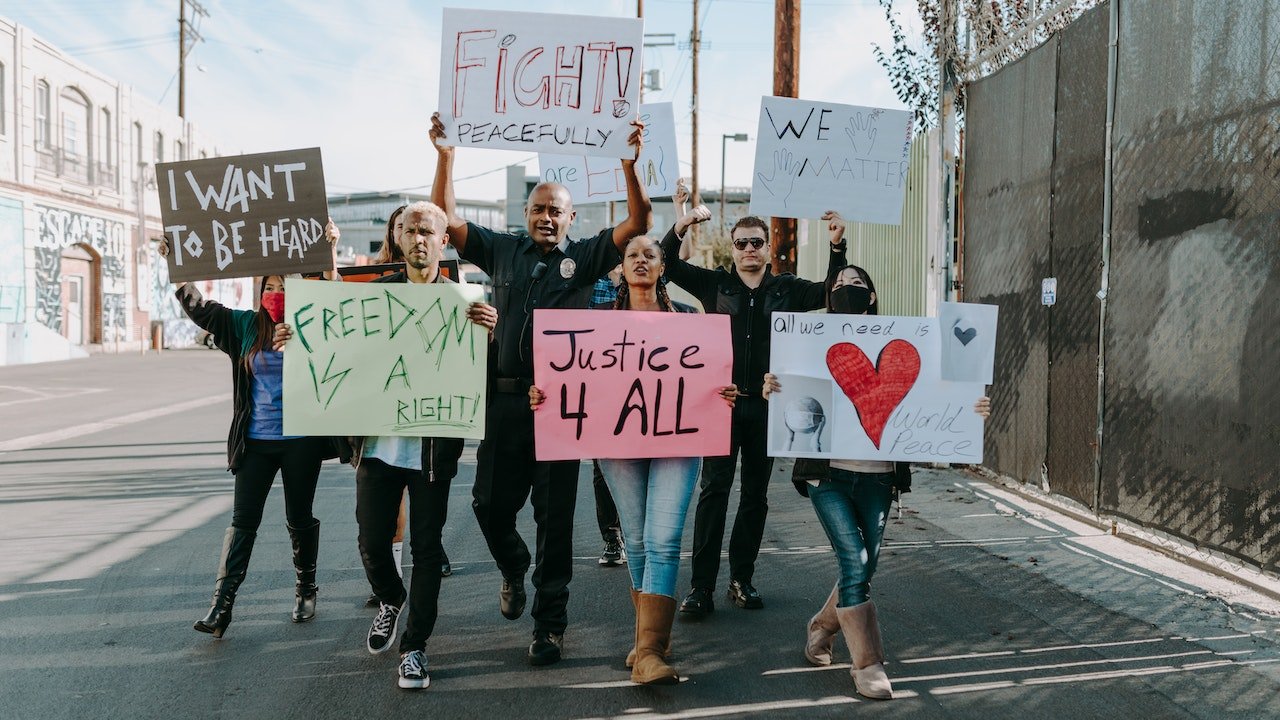Protecting Your Rights During an Arrest in 2024
Protecting Your Rights During an Arrest in 2024 is crucial. Learn key steps to safeguard your future and navigate the legal systems.

Defending Your Rights It’s crucial to act responsibly during an arrest in 2024 to protect your future and guarantee a just judicial process. Knowing your rights when facing an arrest can make a big difference, especially as laws and legal precedents change. You can avoid further issues and improve your ability to manage the legal system by being aware of what to do and how to react at this crucial time.
The legal environment is still evolving in 2024, bringing with it additional difficulties and safeguards for people who are detained. You will get all the knowledge you need from this book to comprehend your fundamental rights, what to do if you are arrested, and how to deal with the police. Knowing your rights and getting the best legal representation can have a significant impact on your case and future, regardless of whether you are a juvenile, an immigrant, or the target of discrimination.
Protecting Your Rights During an Arrest in 2024
The Right to Remain Silent
One of the most fundamental rights you have during an arrest is the right to remain silent. This means you do not have to answer any questions or provide any information that might incriminate you. Exercise this right immediately to avoid unintentionally harming your case.
The Right to an Attorney
You are entitled to legal representation. If you cannot afford an attorney, one will be provided for you. It’s important to request an attorney as soon as possible and refrain from discussing your case with law enforcement without legal counsel present.
The Right to Know the Charges Against You
Law enforcement must inform you of the charges you are facing. This allows you to understand why you are being detained and prepare your defense accordingly.
What to Do When You Are Arrested
Stay Calm and Composed
Being arrested can be a frightening experience, but it’s crucial to remain calm. Panicking or becoming aggressive can escalate the situation and lead to additional charges.
Do Not Resist Arrest
Resisting arrest, even if you believe it is unjust, can result in further complications and charges. Comply with the officers’ instructions and focus on protecting your rights through legal channels.
Request Legal Representation
As soon as you are able, request an attorney. Do not discuss the details of your case with the police without your lawyer present. This helps ensure your statements are not used against you.
The Role of Law Enforcement
Duties and Responsibilities
Law enforcement officers are tasked with upholding the law and protecting citizens. They must follow strict protocols during an arrest to ensure your rights are not violated.
Limits on Police Power
While police have the authority to arrest and detain individuals, their power is not unlimited. They must adhere to legal standards and procedures, and any misconduct can be challenged in court.
How to Handle Police Misconduct
If you believe your rights have been violated during an arrest, document as much information as possible. Report the incident to your attorney and consider filing a formal complaint or seeking legal recourse.
Your Rights During Interrogation
Importance of Remaining Silent
During interrogation, reiterate your right to remain silent. Answering questions without legal advice can lead to self-incrimination and weaken your defense.
Requesting an Attorney
Insist on having your attorney present during any questioning. This ensures that your rights are protected and that you receive proper legal guidance.
Avoiding Self-Incrimination
Be cautious about what you say. Even seemingly harmless statements can be used against you. Let your attorney handle communications with law enforcement.
Legal Representation
Choosing the Right Attorney
Selecting the right attorney can significantly impact the outcome of your case. Look for a lawyer with experience in criminal defense and a good track record.
Public Defenders vs. Private Attorneys
Public defenders are provided if you cannot afford a private attorney. While they are often skilled and dedicated, they may have heavy caseloads. Consider your options and choose the best representation you can afford.
What to Expect from Your Legal Counsel
Your attorney should provide you with clear guidance, defend your rights vigorously, and keep you informed about the progress of your case. Communication and trust are key.
Protecting Your Rights Throughout the Legal Process
Documentation and Evidence
Keep detailed records of all interactions with law enforcement and gather any evidence that can support your case. This documentation can be crucial in court.
Witnesses and Testimonies
Identify and secure witnesses who can testify on your behalf. Their statements can corroborate your version of events and strengthen your defense.
Working with Your Attorney
Maintain open communication with your attorney. Provide them with all necessary information and follow their advice to ensure the best possible outcome.
Special Considerations for Minors
Juvenile Rights
Minors have specific rights and protections under the law. These include the right to have a parent or guardian present during questioning and the right to have their case handled in juvenile court.
Legal Procedures for Minors
The legal process for minors differs from that for adults, with a focus on rehabilitation rather than punishment. Understanding these differences can help in navigating the juvenile justice system.
Differences Between Juvenile and Adult Court
Juvenile courts aim to rehabilitate rather than punish. This approach can result in different outcomes and opportunities for minors compared to adults facing similar charges.
Immigrant Rights During an Arrest
Understanding Immigration Status
Your immigration status can impact your legal rights and options during an arrest. It’s important to know your status and seek appropriate legal advice.
Rights of Undocumented Individuals
Undocumented individuals still have rights during an arrest, including the right to remain silent and the right to an attorney. Specialized legal support is available to help navigate these situations.
Legal Support for Immigrants
Organizations and attorneys specializing in immigration law can provide valuable assistance. Seek out resources and support tailored to your specific circumstances.
Dealing with Discrimination
Recognizing Discriminatory Practices
Discrimination during an arrest can take many forms, including racial profiling or bias. Being aware of these practices can help you recognize and challenge them.
Reporting and Addressing Discrimination
If you experience discrimination, report it to your attorney and consider filing a formal complaint. Legal avenues exist to address and rectify discriminatory practices.
Legal Resources for Victims
Numerous organizations offer support and resources for individuals facing discrimination. Utilize these resources to protect your rights and seek justice.
Post-Arrest Consequences
Criminal Record and Its Impact
An arrest can result in a criminal record, which can affect employment, housing, and other aspects of life. Understanding these consequences is important for planning your future.
Expungement and Sealing of Records
In some cases, you may be able to have your criminal record expunged or sealed, limiting its impact on your life. Discuss these options with your attorney.
Rehabilitation and Reentry Programs
Rehabilitation and reentry programs can help you reintegrate into society after an arrest. These programs offer support and resources to help you rebuild your life.
Read More: What Happened in the Ashton vs. Whataburger Accident Case?
Conclusion
In 2024, it will be more crucial than ever to defend your rights when being arrested. Protecting your future requires that you be aware of your fundamental rights, know how to deal with law enforcement, and have good legal representation. Being aware and organised can help you much whether you are facing post-arrest repercussions, handling an interrogation, or navigating the legal system.
Recall that your rights are there to safeguard you. Remain composed, use your right to silence, and get legal counsel whenever necessary. You may guarantee a just legal procedure and improved case results by taking the initiative and exercising informed judgement. Remain aware, look for assistance, and keep learning about the legal system and your rights.
FAQs
What should I do if I am arrested?
Stay calm, remain silent, and request an attorney immediately. Do not resist arrest or provide any information without legal counsel present.
Can I refuse to speak to the police?
Yes, you have the right to remain silent and should exercise this right to avoid self-incrimination. Request an attorney before answering any questions.
How can I find a good attorney?
Look for an attorney with experience in criminal defense and a good reputation. You can seek recommendations, read reviews, and consult legal aid organizations.
What are my rights if I am a minor?
Minors have specific rights, including the right to have a parent or guardian present during questioning and the right to have their case handled in juvenile court.
What should I do if I face discrimination during an arrest?
Document the incident, report it to your attorney, and consider filing a formal complaint. Legal resources and advocacy groups can provide support and assistance.










